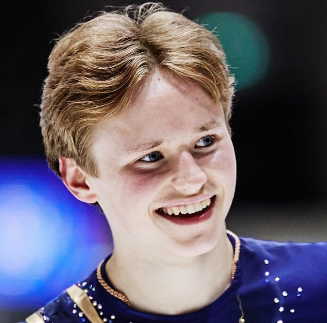Isabeau Levito claims final nugget in U.S. gold rush at World Junior skating
/
One after another, the final four skaters in the women’s free skate at the World Junior Championships performed with assurance and compelling quality, brightening the end of a long and muddled figure skating season.
All did clean programs, the best by surprising Jia Shin of South Korea, who won the free and nearly upset favored Isabeau Levito of the United States for the title Sunday in Tallinn, Estonia.
Levito, gritting her way through the free and getting some benefit of the doubt from the judges, held on by just 0.54 points to become the first U.S. woman atop the world junior podium since Rachael Flatt in 2008. Compatriot Lindsay Thorngren earned the bronze.
Levito’s gold medal, following those in ice dance by brother-sister team Oona and Gage Brown and in men’s singles by Ilia Malinin, gave Team USA three of the four world junior titles for the first time since 2008.
Read More





